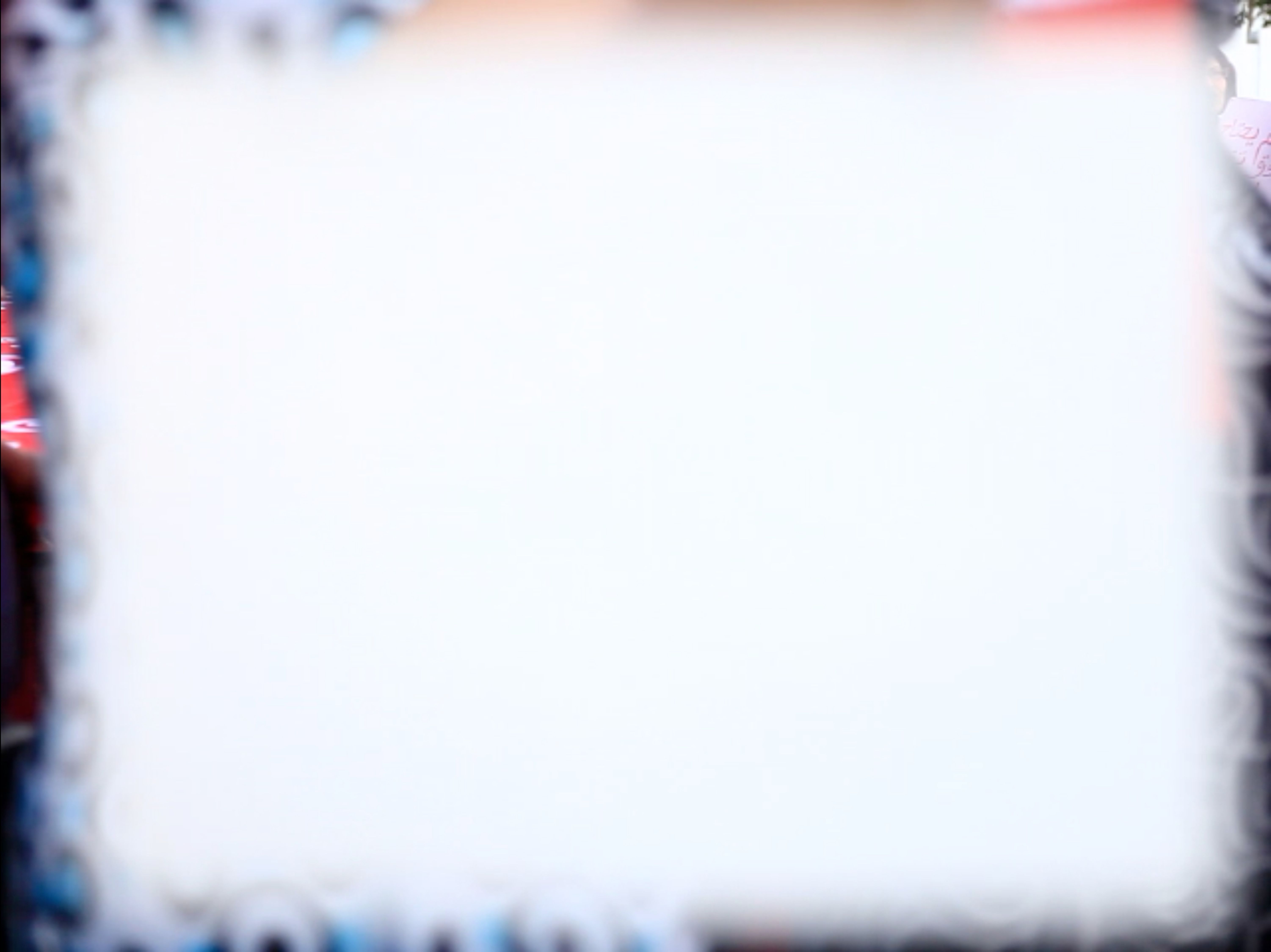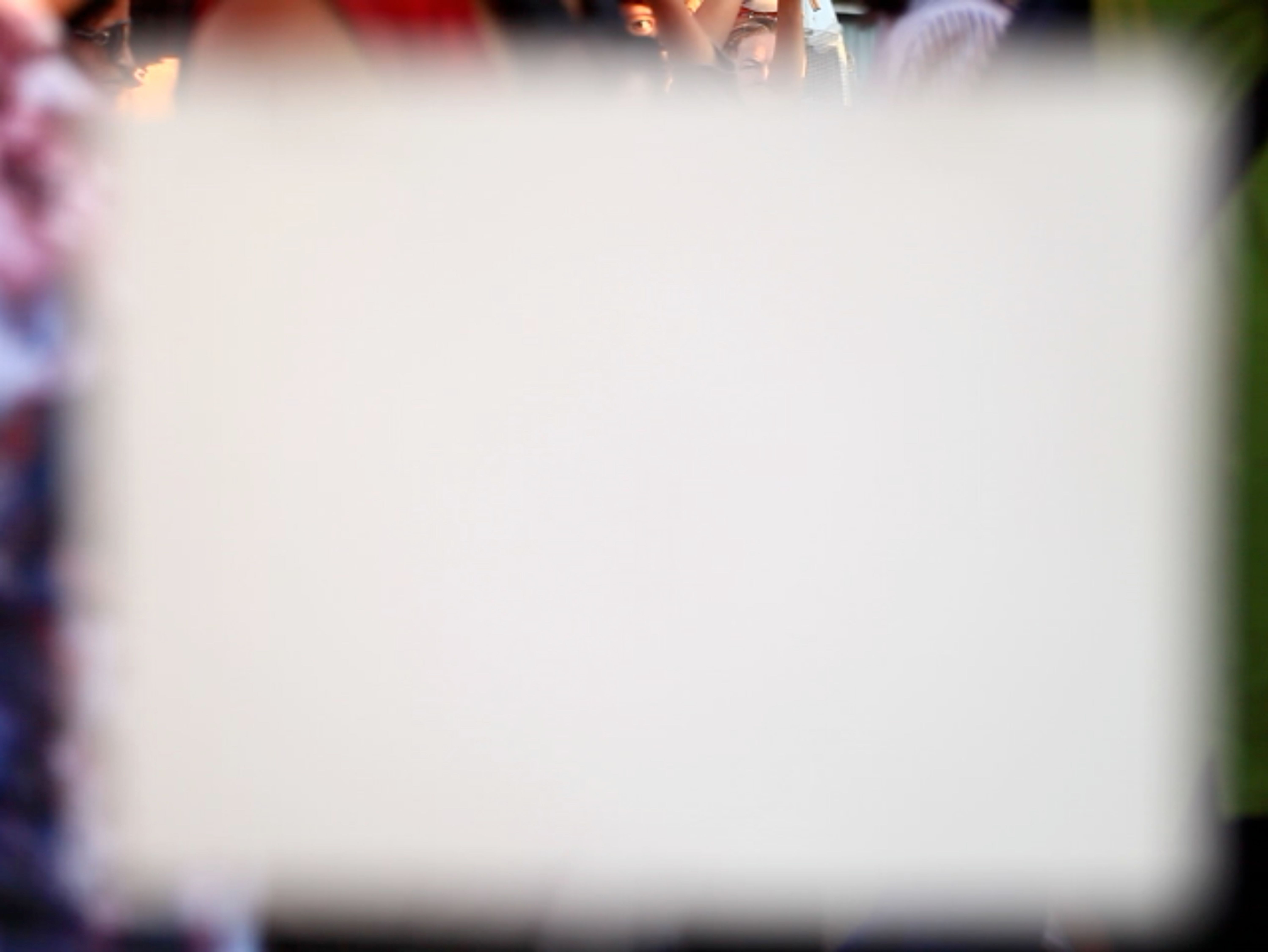Film à blanc (Blank film)
Series of 6 videos
HD Video
4/3
Color
No sound
Variable durations
2013
Notes on Blank Film / English
Notes sur Film à blanc / Français
Blank filming
Another experiment was conducted in Tunis in July 2013, at a time when the country was going through a troublesome period. I filmed the procession that was accompanying the body of Mohamed Brahmi, an assassinated Tunisian political figure from the opposition, to the cemetery. Thousands of people had gone out into the streets to demonstrate. This experience interested me for several reasons. First, the field of vision, completely saturated with people and movements, created tension in the image. I have the impression the device activates the flux produced by these moving forms, in particular through the contrast created between the vibrating fixity of the white frame and the mobility of the bodies moving past. I was also interested by the superposition of forms in depth. In this sense the shutter covers up bodies that are naturally disappearing one after the other.
At the beginning, what interested me about filming this demonstration was the flow of life, the effect of the mass. I had in mind images of crowd scenes in film : the first Lumière films, films by Griffith and Eisenstein. But once I was in position I realized that a tension was being created between the historic event and the discharged — emptied — image produced by the device. Many people in the procession took me for a journalist and wondered what the apparatus was. For example, a woman who passed behind me said « don’t miss anything ! », implying « film the event, memorialize it for the community». You could say this was just a simple anecdote, but from these words the shift, or the off kilter quality of the experience comes to the fore, since the idea is less to capture the event than to miss it. I am making a blank film. And the idea of a blank film is important because it presupposes a film emptied of its content, a film haunted by its absent images. That’s it. Here, there is no film other than the one unfolding elsewhere, projected beyond the screen.
This ambiguous image of a blank film explores the twist of a contact that is not there. To set out to film in the midst of a crowd, in contact with an event, implies establishing a precise distance, whether in terms of the subject to be filmed, the world, or the context. Having recourse to physical intercessors (paper, wire, ink) activates the distance while at the same time clearly linking the camera to the subject being filmed. The wire in Dénouement establishes a long distance contact when the paper screen creates a surface disturbance on a depth. I have the feeling that it is precisely at the point of tension between contact and distance that the truly cinematographic instant occurs, at the edge of film and on the scale of this surface disturbance a haunted memory of cinema survives. This tension operates on another level ; between the small scale and the mass, between the fragment of paper, only a few centimeters wide, and the swarming crowd. The work of framing (and of the frame in the frame) adds to—by a capillary effect—aggregate and fragment in the same image.
And to come back to the question of light, it seems to me that the capturing device interrogates the relation between the natural saturation of the filmed event and the white overexposure of the image. Which gives rise to the following question that I would like to explore with you : is using luminous overexposure a way of escaping media overexposure ? It’s difficult to say at this early stage of the experiment, but I had the impression that I had perhaps found a way to film these scenes that I find so difficult to frame (because they have been seen so often over the last two years.) I have the impression that framing cannot be done without having recourse to retreat, to a distancing."
Ismaïl Bahri
Notes on Blank film, Tunis, 2013

